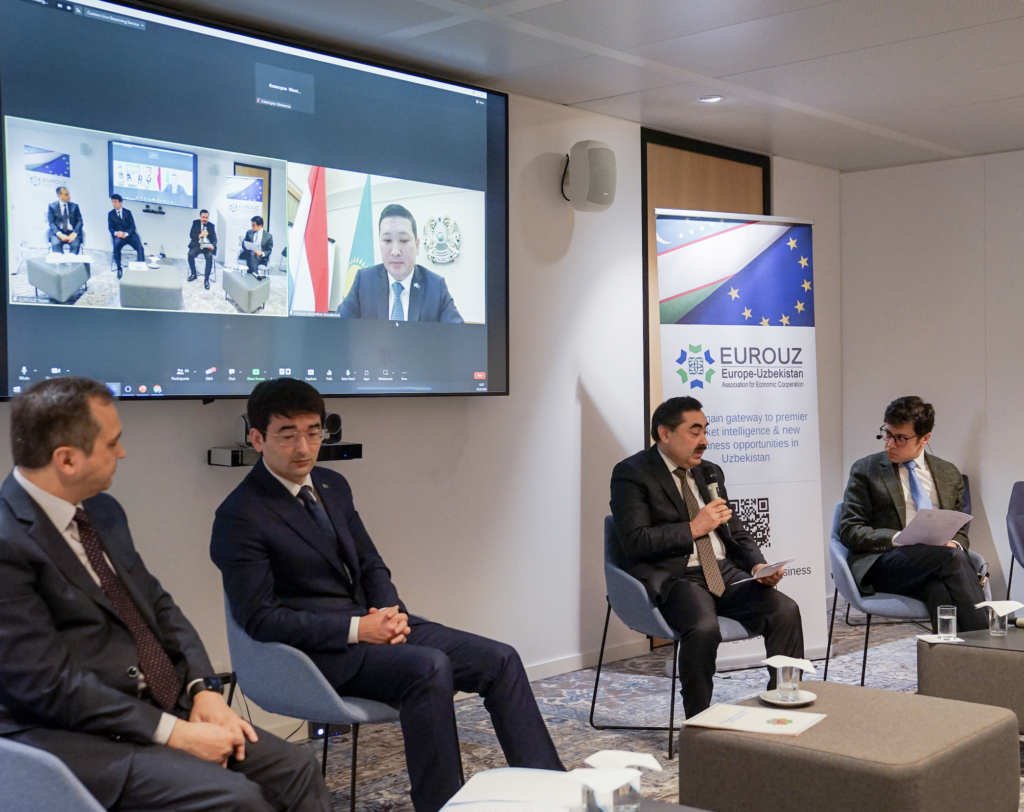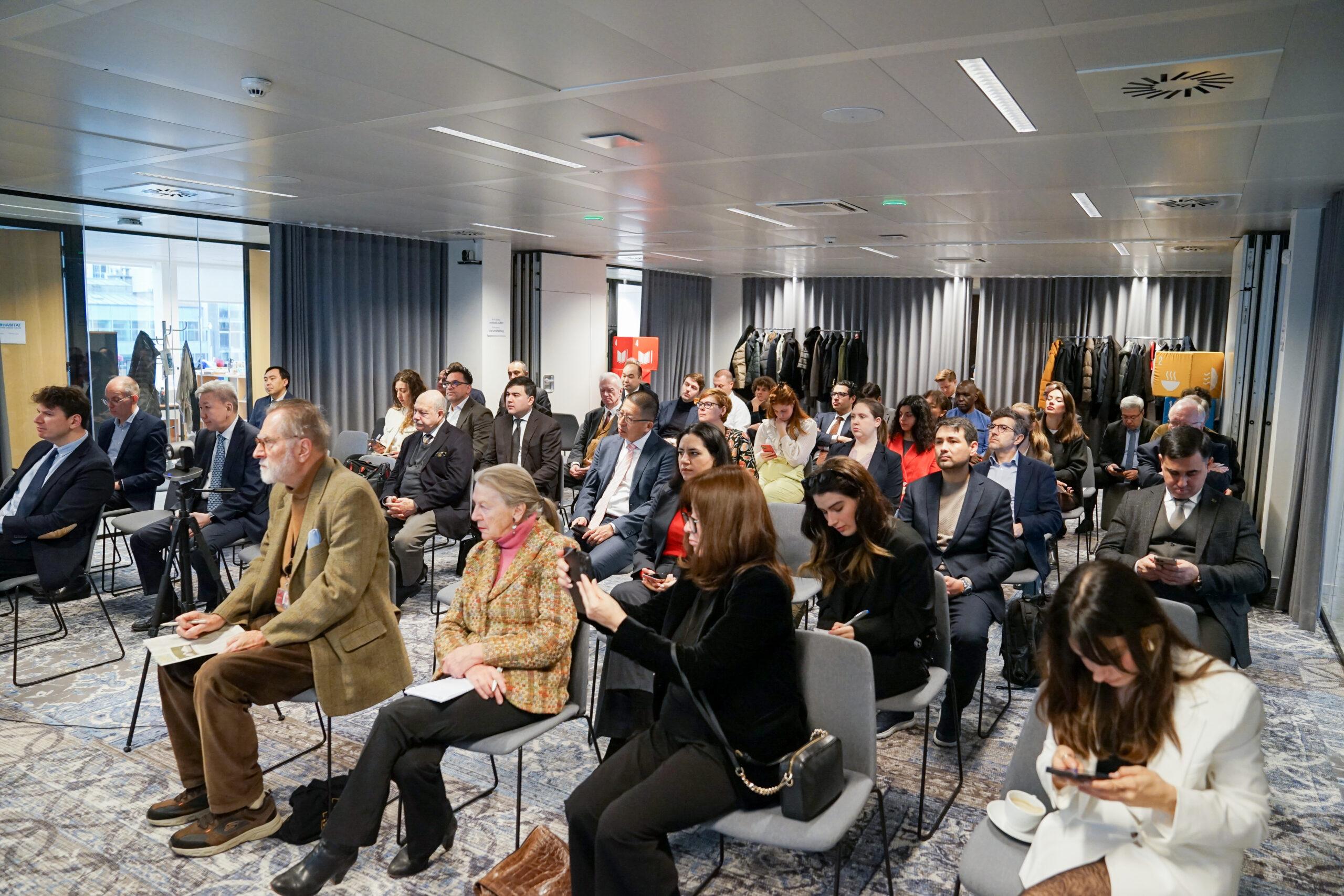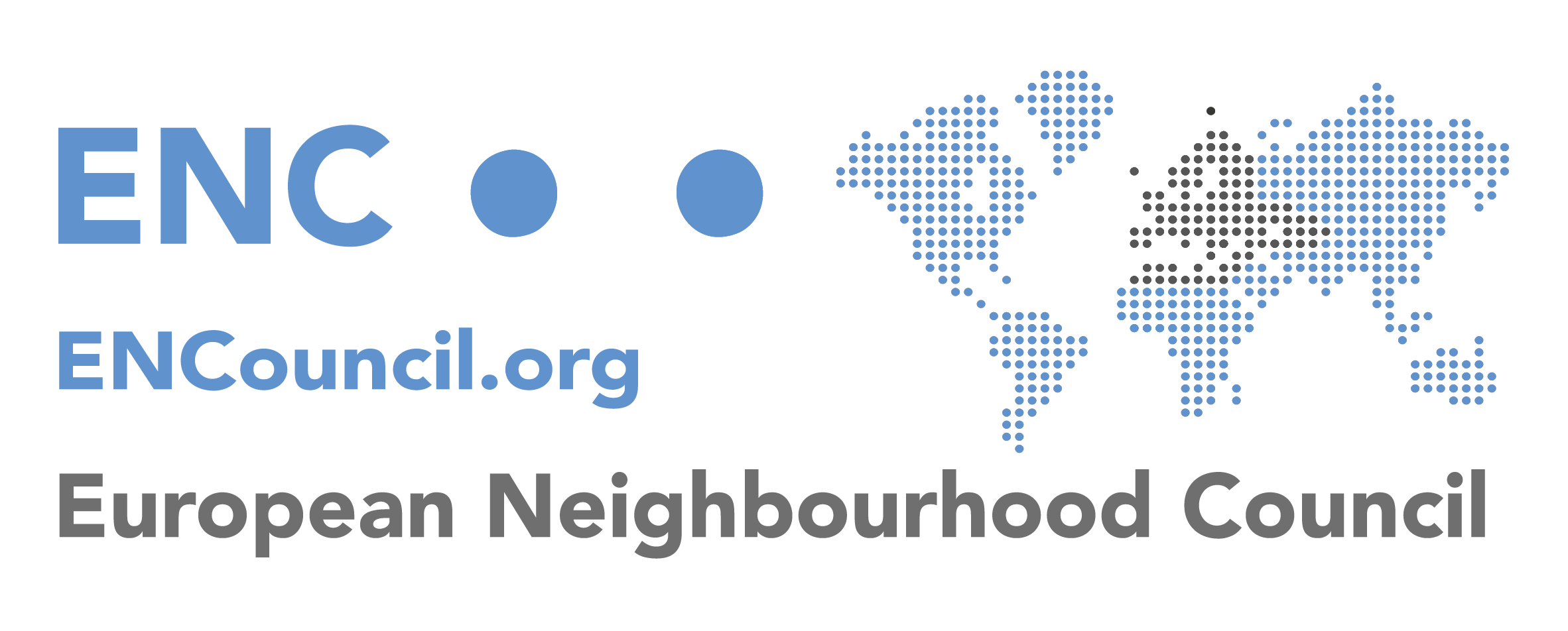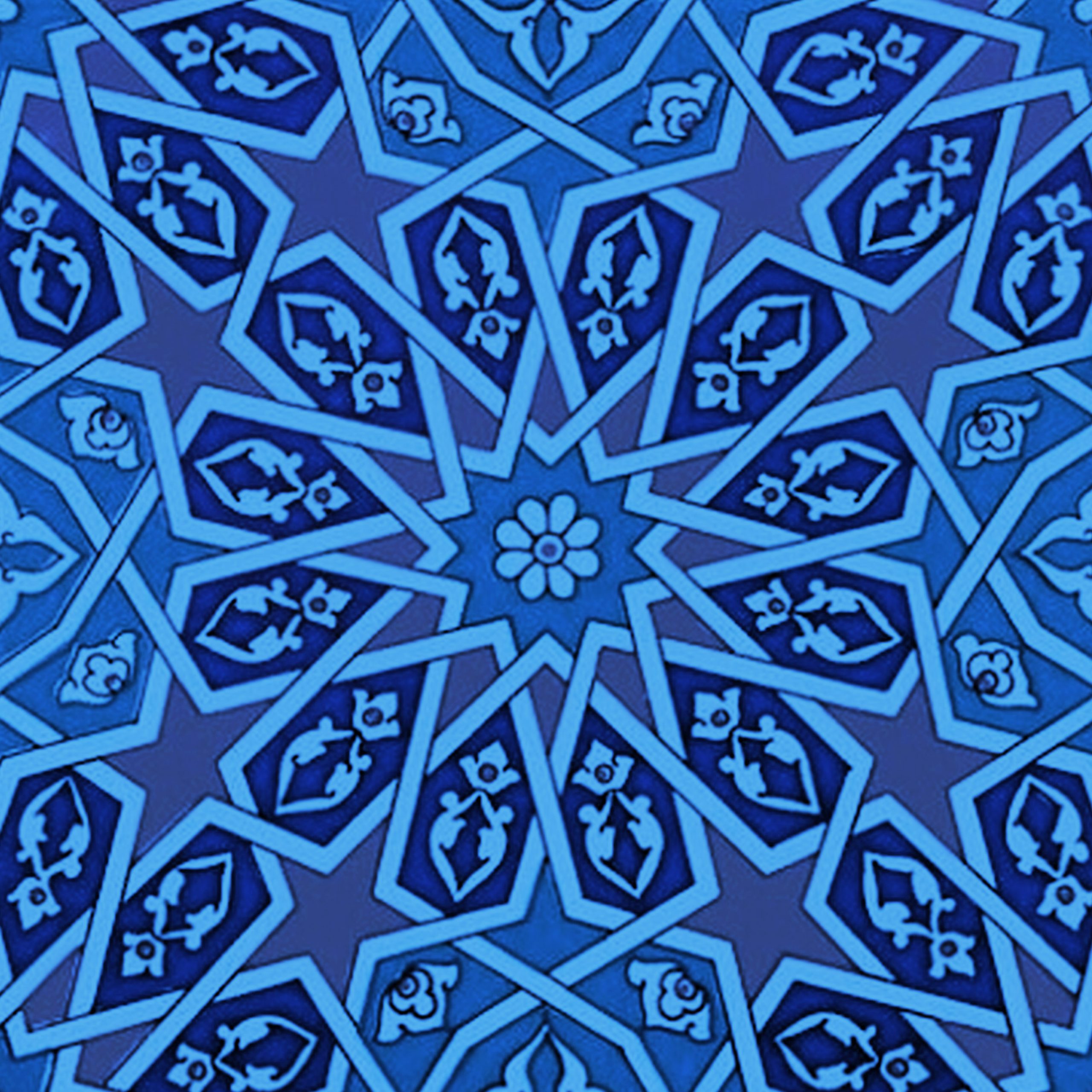Central Asia Ambassadors and experts discussed the future of EU-Central Asia relations right after the Investors Forum in Brussels
The European Neighbourhood Council (ENC), together with the Europe-Uzbekistan Association for Economic Cooperation (EUROUZ) co-organized an event titled “Central Asia Economic Roundtable: Looking into the Future of Cooperation with the European Union” on 2nd of February 2024, hosted by United Nations Development Programme (UNDP) Brussels.
 The first panel titled “Central Asia: A Rising Investment Destination – Insights from the Inaugural EU-Central Asa Investors Forum” hosted Central Asia Ambassadors, namely, H.E. Gairat Fozilov (Ambassador of Uzbekistan to Belgium, Head of Mission the European Union), H.E. Baimukhan Margulan (Ambassador of Kazakhstan to Belgium, Head of Mission the European Union), H.E. Muzaffar Huseinzoda (Ambassador of Tajikistan to Belgium, Head of Mission the European Union) and H.E. Sapar Palvanov (Ambassador of Turkmenistan to Belgium, Head of Mission the European Union) and was modarated by Oybek Shaykhov, Secretary General of the EUROUZ. During their remarks, the Ambassadors emphasized that the European Union and Central Asia are committed to improving connectivity and cooperation in several fields such as renewable energy, transportation, critical raw materials, and more.
The first panel titled “Central Asia: A Rising Investment Destination – Insights from the Inaugural EU-Central Asa Investors Forum” hosted Central Asia Ambassadors, namely, H.E. Gairat Fozilov (Ambassador of Uzbekistan to Belgium, Head of Mission the European Union), H.E. Baimukhan Margulan (Ambassador of Kazakhstan to Belgium, Head of Mission the European Union), H.E. Muzaffar Huseinzoda (Ambassador of Tajikistan to Belgium, Head of Mission the European Union) and H.E. Sapar Palvanov (Ambassador of Turkmenistan to Belgium, Head of Mission the European Union) and was modarated by Oybek Shaykhov, Secretary General of the EUROUZ. During their remarks, the Ambassadors emphasized that the European Union and Central Asia are committed to improving connectivity and cooperation in several fields such as renewable energy, transportation, critical raw materials, and more.
 The second session, moderated by ENC Director Samuel Doveri Vesterbye, focused on the Middle Corridor and Central Asia’s role in the framework of EU global engagement, business, and human development. Eminent speakers included Camilla Brückner, the director of the UNDP Brussels Representation Office; Dmitry Mariyasin, the deputy executive secretary at the UN Economic Commission for Europe; Emmanuel Dupuy, the president of the Institut Prospective et Securité en Europe, or IPSE; and Katarzyna Wawiernia, the resident representative of the UN Development Program in Kazakhstan. The speakers offered insightful information on a variety of topics, including the significance of a systematic EU approach, the integration of smart regulation and digitalization with infrastructure development, France’s role in the Global Gateway, the utilization of digital solutions in the new Eurasia SDG platform, and the promotion of sustainable maritime sector development in the Caspian Sea through partnerships with both domestic and foreign partners.
The second session, moderated by ENC Director Samuel Doveri Vesterbye, focused on the Middle Corridor and Central Asia’s role in the framework of EU global engagement, business, and human development. Eminent speakers included Camilla Brückner, the director of the UNDP Brussels Representation Office; Dmitry Mariyasin, the deputy executive secretary at the UN Economic Commission for Europe; Emmanuel Dupuy, the president of the Institut Prospective et Securité en Europe, or IPSE; and Katarzyna Wawiernia, the resident representative of the UN Development Program in Kazakhstan. The speakers offered insightful information on a variety of topics, including the significance of a systematic EU approach, the integration of smart regulation and digitalization with infrastructure development, France’s role in the Global Gateway, the utilization of digital solutions in the new Eurasia SDG platform, and the promotion of sustainable maritime sector development in the Caspian Sea through partnerships with both domestic and foreign partners.
 The panels were followed by a very engaging Q&A session. The questions spanning from the distinction between China’s Belt and Road Initiative and Global Gateway to the EU’s foreign policy regarding Central Asia were posed by the guests who are experts, think tankers, EU officials, academics and representatives of other important organizations.
The panels were followed by a very engaging Q&A session. The questions spanning from the distinction between China’s Belt and Road Initiative and Global Gateway to the EU’s foreign policy regarding Central Asia were posed by the guests who are experts, think tankers, EU officials, academics and representatives of other important organizations.
 You can watch the event below:
You can watch the event below:


